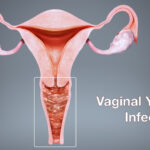Can Phentermine Cause Yeast Infections?

A vaginal yeast infection, also known as candidiasis, is a common condition. A healthy vagina contains bacteria and some yeast cells. But when the balance of bacteria and yeast changes, the yeast cells can multiply. This causes itching, swelling, and irritation. Treating a vaginal yeast infection can relieve symptoms within a few days. Sometimes a more complicated yeast infection may occur with more severe symptoms. Four or more infections may arise in 1 year.
Vaginal yeast infections aren’t considered a sexually transmitted infection (STI), commonly known as sexually transmitted disease (STD). Sexual contact can spread it, but women who aren’t sexually active can also get them.
What is Phentermine?
Phentermine is a prescription medication designed for short-term weight loss purposes, with initial approval dating back to 1959 for individuals over the age of 16. In the 1990s, it was often combined with other weight loss drugs, collectively referred to as fen-phen. Following serious reports of heart-related issues among users, the FDA withdrew the other two components, fenfluramine and dexfenfluramine, from the market.
Today, phentermine is available in standalone forms under brand names like Adipex-P, Lomaira, and Suprenza, or as part of combination medications like Qsymia, where it is paired with another drug called topiramate. Phentermine is classified as a controlled substance due to its stimulant nature and the associated risk of dependence, bearing chemical similarities to amphetamine, another controlled substance.
Healthcare professionals may prescribe phentermine for individuals with obesity, defined by a body mass index (BMI) of 30 or higher. In cases where a person has excess weight and a BMI equal to or greater than 27, accompanied by weight-related conditions such as hypertension, high cholesterol, or type 2 diabetes, it may also be considered. In this article, we will explore the relationship between phentermine and yeast infections, shedding light on what you should know.
Can Phentermine Cause Yeast Infections?
Phentermine itself is not a direct cause of yeast infections. However, it’s important to understand that yeast infections are often the result of an imbalance in the body’s natural flora or other factors. Here are important things you should know about the connection between phentermine and yeast infections:
1. Dry Mouth: Dry mouth, known as xerostomia, is a well-documented side effect of phentermine use. This condition occurs because phentermine’s stimulant properties can affect the salivary glands, leading to reduced saliva production. Saliva is essential for maintaining oral health as it helps to cleanse the mouth and maintain a balanced pH. When saliva production decreases, the mouth becomes dry and less resistant to various microorganisms, including yeast.
This parched oral environment can create a more favorable habitat for yeast, potentially increasing the risk of oral yeast infections, commonly referred to as thrush. Thrush presents as white, creamy patches on the tongue, inner cheeks, and sometimes the throat, often causing discomfort and altered taste perception. Maintaining good oral hygiene and staying hydrated can help alleviate dry mouth and reduce the likelihood of yeast overgrowth.
2. Changes in Taste Perception: Phentermine can affect taste perception in some individuals, leading to changes in how foods are perceived and experienced. These alterations in taste perception can influence food choices and dietary habits. Some individuals may report heightened sensitivity to certain tastes, while others may find that they are less inclined to enjoy the flavors of healthy, nutritious foods.
This shift in taste preferences can indirectly contribute to yeast infections by influencing food choices. Those taking phentermine might be more inclined to consume sugary or carbohydrate-rich foods, which can serve as a food source for yeast, potentially promoting its overgrowth. It is crucial for individuals on phentermine to remain vigilant about their dietary choices and strive for a balanced, healthful diet to mitigate any potential impact on yeast-related concerns.
3. Individual Variability: It is vital to acknowledge that the response to medications, including phentermine, can vary significantly from one person to another. While dry mouth and changes in taste perception are common side effects of phentermine, not everyone will experience them. Some individuals may have a heightened susceptibility to these side effects, while others may not encounter them at all. Thus, the potential risk of yeast infections associated with phentermine can vary based on individual responses.
4. Hygiene and Lifestyle Factors: Yeast infections, including candidiasis, are often influenced more by hygiene and lifestyle factors than by the specific medication a person is taking. Good personal hygiene, such as regular bathing and proper cleansing, can help prevent yeast overgrowth. Avoiding behaviors that promote yeast growth, like wearing damp or tight-fitting clothing for extended periods or excessive sugar consumption, is crucial.
A diet high in sugar and refined carbohydrates can provide yeast with the necessary nutrients to thrive. Therefore, maintaining a diet that minimizes these yeast-promoting elements is important in reducing the risk of yeast infections.
What You Should Do
If you are taking phentermine and have concerns about yeast infections, consider the following steps:
1. Stay Hydrated: To counteract the dry mouth side effects associated with phentermine, it is crucial to ensure you remain adequately hydrated. Drinking plenty of water throughout the day can help alleviate this issue. Adequate hydration not only aids in saliva production but also promotes overall health and well-being. It’s recommended to set a regular schedule for water intake and carry a reusable water bottle to stay on track.
2. Maintain Good Oral Hygiene: Regular and thorough oral hygiene practices are essential for reducing the risk of oral yeast infections while taking phentermine. Brushing your teeth at least twice a day with a fluoride toothpaste, using a soft-bristle toothbrush, and paying close attention to your tongue and gums can help prevent the buildup of yeast. Additionally, using an antiseptic mouthwash can further reduce the risk. It’s important to follow a consistent oral hygiene routine and consider using a tongue scraper to remove any residue.
3. Healthy Diet: A balanced and nutritious diet plays a pivotal role in minimizing the potential risk of yeast infections. To counteract the indirect effects of phentermine on taste perception and dietary choices, it is advisable to follow a diet that minimizes sugar and yeast-promoting foods. Incorporate a variety of fruits, vegetables, whole grains, and lean proteins into your meals. Reducing your consumption of sugary and highly processed foods not only supports your weight loss goals but also decreases the likelihood of yeast overgrowth.
4. Consult Your Healthcare Provider: If you encounter persistent or troubling symptoms while taking phentermine, do not hesitate to consult your healthcare provider. They are your best resource for guidance on managing side effects and assessing any underlying factors that may be contributing to your health concerns. Your healthcare provider can make necessary adjustments to your treatment plan or offer alternative solutions to ensure you are on the path to successful and safe weight loss.
By following these practical steps, individuals taking phentermine can minimize the potential risk of yeast infections while benefiting from the weight loss effects of the medication. These strategies encompass both self-care and professional guidance to help individuals maintain their health and well-being during their weight loss journey with Phentermine.
Conclusion
In conclusion, phentermine itself is not a direct cause of yeast infections. While there may be some indirect factors to consider, proper hygiene, dietary choices, and staying hydrated can help minimize any potential risks. As always, it is crucial to consult with your healthcare provider when taking any prescription medication to ensure you are on the right path to a healthier you.





